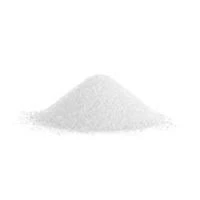TEL: 0086-311-88862036

Jan . 28, 2025 01:27
Back to list
citric acid food additive
Citric acid is perhaps one of the most underappreciated food additives, yet its role in the food industry is undeniably critical. With its natural occurrence in citrus fruits, citric acid has carved a significant niche in food preservation, flavor enhancement, and even health supplementation. Understanding its unique applications and benefits can offer both consumers and manufacturers insight into its indispensable value.
To appreciate citric acid's wide-ranging applications, one must look beyond the consumer-facing products and delve into its industrial uses. Citric acid is widely used in brewing to control pH during fermentation, ensuring the consistency and quality of each batch. Its chelating properties are instrumental in preventing the oxidation of fats, oils, and other ingredients prone to spoilage. This expertise is critical in maintaining the freshness and appeal of not just food items, but also beverages and condiments. Moreover, the health benefits associated with citric acid are complemented by its presence in dietary supplements. Citric acid plays a role in mineral absorption and energy production within the body, contributing to overall wellness. Its inclusion in multivitamins and health supplements underscores its nutritional importance, hence broadening its application beyond traditional food uses. Manufacturers often maximize the experience of citric acid's properties by integrating it into innovative product formulations. For instance, in natural cleaning products, citric acid is lauded for its ability to break down grime and limescale safely without harmful chemicals. This multifunctional aspect of citric acid demonstrates its relevance in eco-friendly living, bridging the gap between food-grade additives and household applications. In conclusion, citric acid’s versatility as a food additive cannot be overstated. Its capacity to preserve, enhance flavor, and contribute to health and wellness underscores its irreplaceable role in food technology. As consumers become more health-conscious and environmentally aware, citric acid’s natural origins and multifaceted utility ensure it will remain a preferable choice both in and out of the kitchen. For manufacturers, the challenge and opportunity lie in exploring new frontiers where citric acid’s properties can offer innovative solutions that meet contemporary demands.


To appreciate citric acid's wide-ranging applications, one must look beyond the consumer-facing products and delve into its industrial uses. Citric acid is widely used in brewing to control pH during fermentation, ensuring the consistency and quality of each batch. Its chelating properties are instrumental in preventing the oxidation of fats, oils, and other ingredients prone to spoilage. This expertise is critical in maintaining the freshness and appeal of not just food items, but also beverages and condiments. Moreover, the health benefits associated with citric acid are complemented by its presence in dietary supplements. Citric acid plays a role in mineral absorption and energy production within the body, contributing to overall wellness. Its inclusion in multivitamins and health supplements underscores its nutritional importance, hence broadening its application beyond traditional food uses. Manufacturers often maximize the experience of citric acid's properties by integrating it into innovative product formulations. For instance, in natural cleaning products, citric acid is lauded for its ability to break down grime and limescale safely without harmful chemicals. This multifunctional aspect of citric acid demonstrates its relevance in eco-friendly living, bridging the gap between food-grade additives and household applications. In conclusion, citric acid’s versatility as a food additive cannot be overstated. Its capacity to preserve, enhance flavor, and contribute to health and wellness underscores its irreplaceable role in food technology. As consumers become more health-conscious and environmentally aware, citric acid’s natural origins and multifaceted utility ensure it will remain a preferable choice both in and out of the kitchen. For manufacturers, the challenge and opportunity lie in exploring new frontiers where citric acid’s properties can offer innovative solutions that meet contemporary demands.
Latest news
-
Buy High-Quality Trichloroisocyanuric Acid for Sale | TCCA 90% SupplierNewsAug.30,2025
-
Pure Sodium Dichloroisocyanurate Dihydrate | Powerful DisinfectantNewsAug.29,2025
-
Industrial Chemicals: Quality & Purity for Every IndustryNewsAug.28,2025
-
Nitrile Rubber Honoring Strict Production StandardsNewsAug.22,2025
-
Aspartame Ingredients Honoring Food Safety ValuesNewsAug.22,2025
-
Fertilizer for Balanced Plant NutritionNewsAug.22,2025
-
Cyanide Gold Processing with High Purity AdditivesNewsAug.22,2025
HOT PRODUCTS
Hebei Tenger Chemical Technology Co., Ltd. focuses on the chemical industry and is committed to the export service of chemical raw materials.
-

view more DiethanolisopropanolamineIn the ever-growing field of chemical solutions, diethanolisopropanolamine (DEIPA) stands out as a versatile and important compound. Due to its unique chemical structure and properties, DEIPA is of interest to various industries including construction, personal care, and agriculture. -

view more TriisopropanolamineTriisopropanolamine (TIPA) alkanol amine substance, is a kind of alcohol amine compound with amino and alcohol hydroxyl, and because of its molecules contains both amino and hydroxyl. -

view more Tetramethyl Thiuram DisulfideTetramethyl thiuram disulfide, also known as TMTD, is a white to light-yellow powder with a distinct sulfur-like odor. It is soluble in organic solvents such as benzene, acetone, and ethyl acetate, making it highly versatile for use in different formulations. TMTD is known for its excellent vulcanization acceleration properties, which makes it a key ingredient in the production of rubber products. Additionally, it acts as an effective fungicide and bactericide, making it valuable in agricultural applications. Its high purity and stability ensure consistent performance, making it a preferred choice for manufacturers across various industries.





